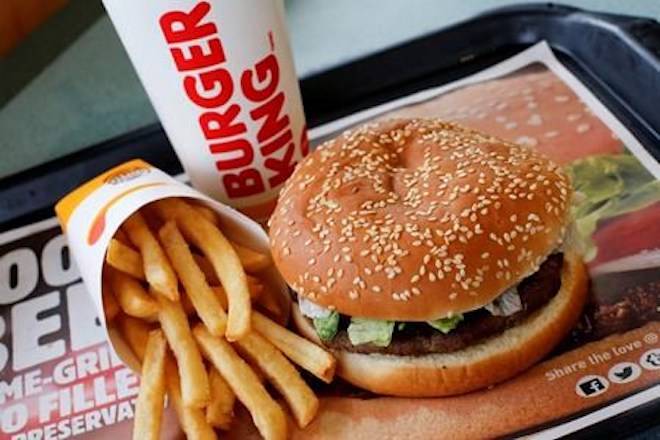One of Canada’s largest fast-food companies says it will review a controversial clause in its franchisee contracts less than a week after numerous competitors in the U.S. dropped similar language from their contracts to avoid an antitrust lawsuit.
The so-called no-poach clause — in which franchisees sign agreements prohibiting them from hiring employees from other franchisees — is common, but has recently caused concern it may stifle wages and prompted a rethinking of practices by large operators.
Restaurant Brands International, which owns Tim Hortons, Burger King and Popeyes Louisiana Kitchen, includes such a clause in agreements with its franchisees in Canada and the U.S. where it boasts more than 10,000 restaurants.
RELATED: Tim Hortons signs agreement to expand to China
RBI spokeswoman Devinder Lamsar called it “a fairly standard practice for years” in the retail and restaurant industry.
“Franchisees invest heavily in training their team members and they have always shared an interest in encouraging their best talent to stay with their restaurants,” she said in a statement.
However, the parent indicated it is aware of recent questions surrounding the practice.
“We will be speaking with our franchisee advisory boards in the coming couple of weeks with a view to changing this clause to reflect a more mobile workforce,” Lamsar said.
The shift would put it on par with seven fast-food giants who last week committed to ending the practice in the United States to avoid a lawsuit from the office of the Attorney General for Washington State. According to a statement, the Attorney General’s office launched an investigation into the practice this year as the clauses may violate antitrust provisions in the state’s Consumer Protection Act.
Four of the seven companies have a significant Canadian presence: Arby’s, Carl’s Jr., Cinnabon and McDonald’s. None of the companies responded to questions about whether their Canadian franchisees are subject to no-poach rules, and if so, whether they intend to stop using them north of the border.
The practice came into the spotlight after two Princeton University academics released a working paper in late 2017 that examined documents from the year 2016 for all franchisors with more than 500 franchise units in the U.S. and found that 58 per cent of contracts included such a clause. Eighty per cent of the 40 quick-service restaurant operators included in the paper enforced a no-poach rule.
The paper suggested the clauses may result in suppressing wage growth.
“It might help explain a recent puzzle in the U.S. job market,” the paper reads, adding unemployment is low and job openings are high, but wage growth “has remained surprisingly sluggish.”
The data was provided by FRANdata, a franchise market-research firm. A company spokesperson said it could not provide similar data for Canadian franchises as it lacks complete information for the country.
RELATED: Tim Hortons, franchisees spat over $700M plan to reno many locations
The Canadian Press asked more than a dozen eatery operators on the American list with a significant presence in Canada whether they also incorporate no-poach rules into their Canadian franchisee contracts — a majority of which did not respond.
Dunkin’ Donuts, whose parent company also owns Baskin-Robbins, denied including the clause. A spokesperson for Dunkin’ Donuts said the company removed the provision more than 15 years ago for both chains, and while it may still appear for some franchisees operating under an older agreement, it is not enforced.
A spokesperson for Wendy’s said its franchise agreement does not have an anti-poaching provision in either country.
RBI was the sole company to acknowledge using the clause and said it was considering changing its policy as questions are being raised about the practice.
The Canadian Press



